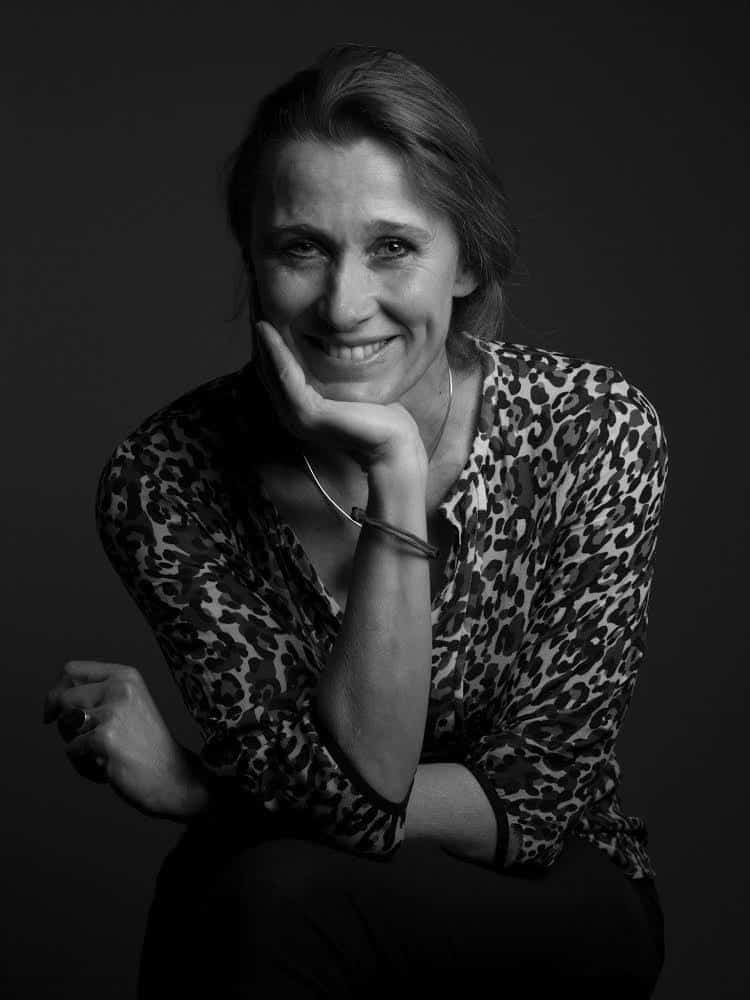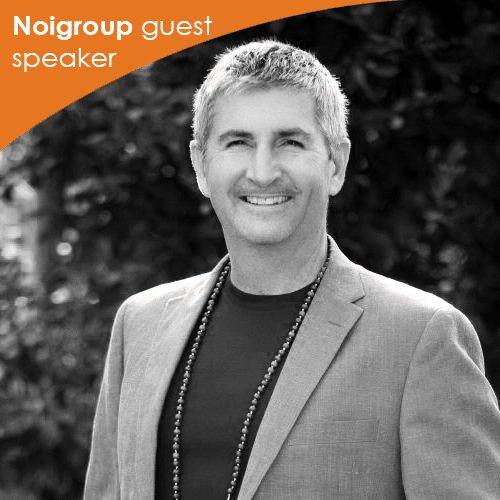Venue: Noigroup, 19 North, Street Adelaide


Embodiment in Pain Science Education, Adelaide
Course Host: Fran Ammirato
 Face to Face Course
Face to Face CourseDescription
Prerequisites
This course is designed for allied health professionals who have read Explain Pain or completed an Explain Pain course, and who are seeking more options when patients do not engage with current pain science education processes, or when individuals struggle to translate knowledge acquisition into behavioural change.
No prior knowledge or experience with mind-body techniques is required to complete the course or apply the embodied pain science education techniques presented. All the techniques offered are within the scope of practice of allied health professionals. Scripts will be provided for key embodied education techniques.
Objectives
- Explain the principles of embodied education and interoception, highlighting their role as complementary approaches to pain science education.
- Examine the key messages and overall intent behind pain science education.
- Analyse embodied experiences that may hinder or support the reconceptualisation of pain.
- Instruct participants in foundational breathing and mind-body techniques, including interoceptive guidelines during provocative movement, as part of embodied pain science education.
- Demonstrate the application of these techniques through the use of a case study.
Course Enquiry
Embodiment in Pain Science Education, Adelaide Adelaide on
Instructors

Noigroup Instructor, MSc, Post Grad Manip Therapy, Dip PT, Yoga Teacher and Embodiment Coach
Languages: English/Deutsch, Regions: Australasia/Europe
Courses: Embodiment in Pain Science Education, Online, Explain Pain Online Europe, Explain Pain (Schmerzen Verstehen) Online
Martina Egan-Moog
Martina is an APA-titled pain physiotherapist who works in an interdisciplinary pain management program in Melbourne and as a tutor for the Musculoskeletal/Sports Master’s at LaTrobe University. In 2020, she started a small private practice out of a yoga studio and a boxing gym where she primarily incorporates psychologically informed pain management strategies, embodied movement principles and trauma-informed approaches into her therapy.
She describes herself as a “Pott-Kind” (a native of the area around the river Ruhr in Germany), where she completed her physiotherapy diploma in 1990 at the University clinic in Essen. This was followed by several years working in private practices in the south of Germany, focusing on musculoskeletal and sports injuries. Her interest in neurodynamic principles grew, and she completed a Postgraduate Diploma in Manipulative Therapy in 1996 and a Master of Science in 1999, both at Curtin University, WA. Her thesis focussed on late whiplash patients for quantitative sensory and psychological profiling. She then worked within a cognitive-behavioural pain management program in Sydney until 2003. During this time, she was also introduced to yoga, which has accompanied her ever since, leading to her completing a Yoga Teacher certificate in 2019 and an Embodiment Coaching Certificate in 2023.
Martina has been teaching and publishing in the area of pain for over 20 years in Europe and Australia. In 2000, with the late Max Zusman, she developed an interdisciplinary course, “The Problem Pain Patient – understanding pain physiology and pain management” which was regularly running in Europe until 2015. She joined the Noigroup instructor faculty in 2003 after meeting David Butler during a self-guided cycling tour that aimed to raise funds for the Arthritis Foundation in Australia by offering communal pain education along the route between Perth and Sydney. In 2004, she translated the book “Explain Pain” into German and lectured the first Explain Pain course in Germany in 2006. Since then, she remains responsible for any updates to the course and book, including the translation and integration of the Protectometer, as well as translating the Graded Motor Imagery course, always in conjunction with her German-speaking faculty members.
She is a member of the German Pain Society and has been jointly responsible for developing, teaching, and assessing the 80-hour curriculum for ‘specialised pain physiotherapy/occupational therapy’ since 2014.
She is a mother of three teenage children and two dachshunds and regularly swims with the Port Melbourne Icebergs in the Bay. Martina’s main interest is to bridge research findings from pain sciences and behavioural medicine to clinical practice, and she continues to do this by teaching in German and English.
Durch Ihre manualtherapeutische Arbeit in Physiopraxen in Süddeutschland begann 1995 Martinas Interesse am Neurodynamischen Konzept. Ein Postgraduate Diploma in Manipulative Therapy (1996) und ein Masters by Science degree (1999) an der Curtin Universität in Perth, West Australien, sowie Forschung im Bereich der Schmerzphysiologie/Schmerzpsychologie ermöglichten Ihr sich in die Materie zu vertiefen.
Von 1999 bis 2003 hat Martina in einem Kognitiv-Verhaltenstherapeutischen Programm für chronische Schmerzpatienten am Pain Management and Research Centre der Universität Sydney gearbeitet woraus der Kurs ‘Interaktionen mit Problematischen Schmerzpatienten’ entstanden ist den sie über 10 Jahre lang zusammen mit Max Zusman (+2013) unterrichtet hat. Seit ihrer deutschen Uebersetzung des Buches ‘Explain Pain’ hat sie den Kurs ‘Schmerzen verstehen’ für den deutschsprachigen Raum mit entwickelt, den sie seit 2006 regelmässig unterrichtet. Zusätzlich engagiert sie sich bei Noigroup für die Übersetzung des ‘Protectometers’ und des ‘Graded Motor Imagery’ Programms.
2009 begann Ihre Curriculums- und später Dozententätigkeit in der seit 2014 bestehenden Weiterbildung zur ‘Speziellen Schmerzphysiotherapie’ der Deutschen Schmerzgesellschaft.
Nach 10 Jahren in Basel und München, zog es Martina und ihre Familie zurueck nach Down Under. Seitdem arbeitet Martina im ambulanten Schmerzmanagement Programm Precision Ascend in Melbourne, ausschliesslich mit Arbeits- und Verkehrsunfallpatienten, sowie im Zentrum für Schmerzmanagement am St. Vincent Krankenhaus (Barbara Walker Centre for Pain Management). Sie ist Tutorin für Schmerzwissenschaften an der Latrobe Universität. 2019 hat sie von der Australian Physiotherapy Association den Titel “APA titled Pain Physiotherapist” verliehen bekommen.
In ihrem Unterricht versucht Martina immer wieder eine Brücke zwischen Forschungsergebnisse aus den Schmerzwissenschaften und der klinischen Arbeit in multidisziplinären Teams und ambulanten Praxen zu schlagen.

Guest Speaker
English, Australia
Courses: Embodiment in Pain Science Education, Online
Neil Pearson
PT, MSc(RHBS), BA-BPHE, C-IAYT, ERYT500
Neil is a guest speaker for Noigroup, presenting a new course in 2024 – Embodiment in Pain Science Education – co-created with Noigroup instructor Martina Egan.
Neil’s clinical focus has been working with people with chronic pain for most of his forty years as a physiotherapist. Currently, he works clinically in an interdisciplinary team with veterans with complex chronic pain and mental health concerns. Neil is a Clinical Associate Professor at the University of British Columbia. He has worked as a pain care consultant for the British Columbia Medical Association, Canada’s largest network of 300+ rehabilitation clinics, Partners in Canadian Veterans Rehabilitation Services, and Pain BC, Canada’s premier non-profit working to transform how pain is understood and treated. Neil is the founding chair of the Canadian Physiotherapy Pain Science Division and recipient of the Canadian Pain Society’s Excellence in Interprofessional Pain Education award. Neil is also a yoga therapist, faculty in accredited yoga therapy training programs and subject matter expert in research into the effects of yoga-informed and pain-informed movement practices for people with knee osteoarthritis. Clearly Neil has a passion for pain science and for sharing ongoing evolutions of pain science education with others.
Neil has authored a patient eBook Understand Pain Live Well Again (2008), a book chapter ‘Yoga Therapy’ in Thompson and Brooks, Integrative Pain Management (2016), numerous articles on yoga and pain science including a recent white paper for the International Association of Yoga Therapists – How Yoga Therapy Serves in Comprehensive Integrative Pain Management, and How it Can Do More (2020), and co-authored/edited the textbook Yoga and Science in Pain Care: Treating the Person in Pain (2019).
Noigroup
Address
Neuro Orthopaedic Institute (Australasia) Pty Ltd
19 North Street
Adelaide SA 5000
Australia
ABN 61 064 209 981
